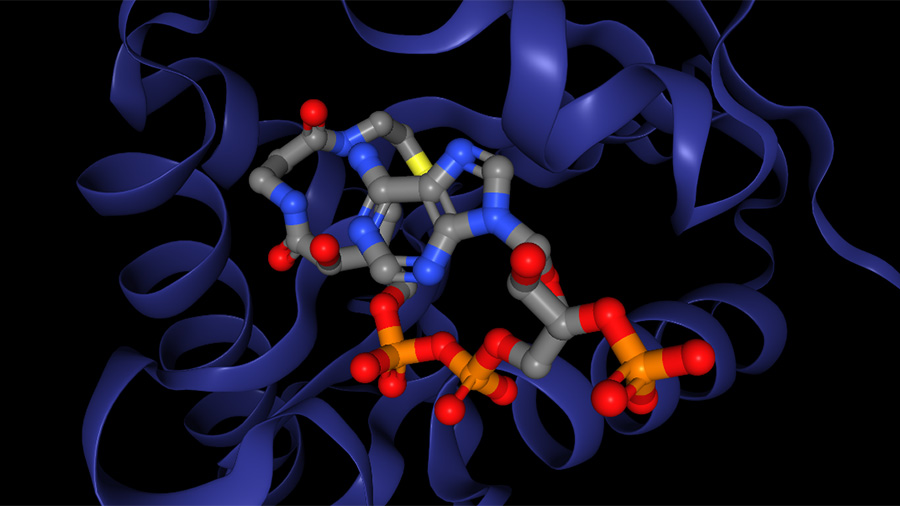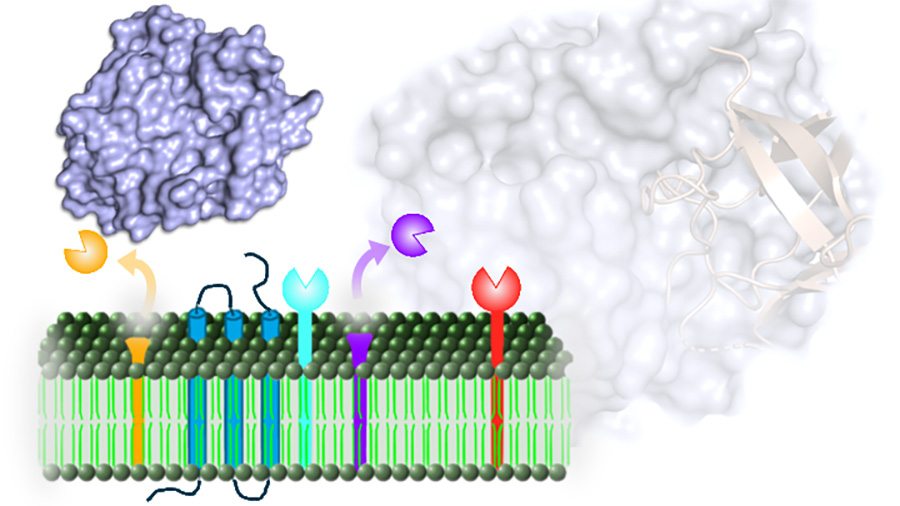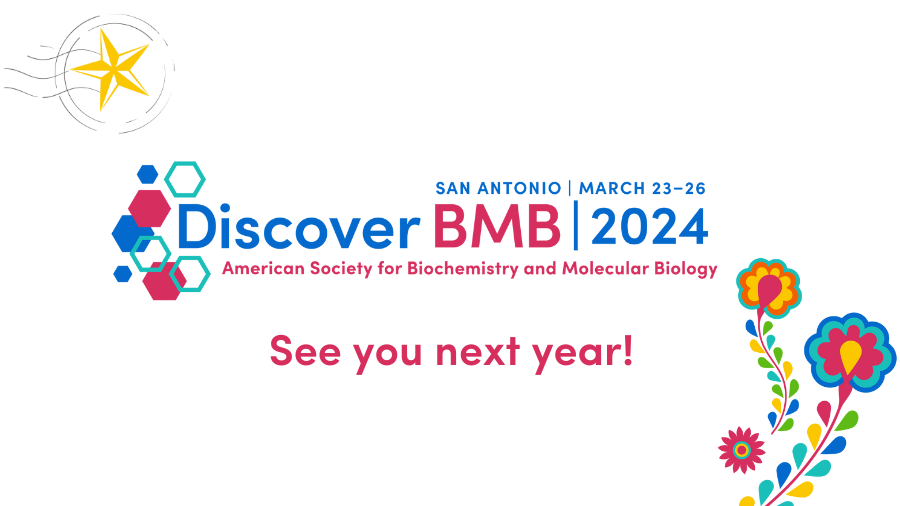Calendar of events, awards and opportunities
Every week, we update this list with new meetings, awards, scholarships and events to help you advance your career. If you’d like us to feature something that you’re offering to the bioscience community, email us with the subject line “For calendar.” ASBMB members’ offerings take priority, and we do not promote products/services. Learn how to advertise in ASBMB Today.
June 26: AAC&U Convergence Fellowship Program for BIPOC women in STEM application deadline
The American Association of Colleges and Universities, with support from the Henry Luce Foundation, is accepting applications from BIPOC women in STEM for its Convergence Fellowship Program. This incubator program provides BIPOC women in STEM with early entrepreneurial education, access to mentors, and viable connections to an investor network that is culturally responsive, empowering and fully committed to promoting social justice through the scientific and technological innovations of BIPOC women. During this yearlong program, participants learn about business modeling, product development, finance and intellectual property in addition to grappling with the systems and structures that marginalize people of color within STEM and society at large. Learn more.

June 27: Webinar on LGBTQIA+ in STEM advocacy
Pride Month originated from the Stonewall uprising in New York city in 1969. To honor the tradition of protest and advocacy that is at the heart of the Pride Month celebrations we have today, at 2 p.m. Eastern on June 27, ASBMB is hosting a webinar dedicated to LGBTQIA+ advocacy in STEM. Our panelists will discuss their career journeys, reflecting both on what it was like when they started their education and training and what it's like to be an LGBTQIA+ scientist today. Then, they'll discuss advocacy opportunities and ways allies can take action and demonstrate their support for the rights of members of the LGBTQIA+ STEM community at both the state and federal level. Attendees will also learn about ASBMB's advocacy toolkit and specific recommendations for how to create safe zones within their own communities. Register.
June 29: Intro to policy analysis for scientists communication workshop
At 12 p.m. Eastern, Marlit Hayslett, a communication coach for scientists, is hosting a free 45-minute virtual session to help STEM professionals brush up on their communication skills. This workshop offers an introduction for STEM professionals who want to engage in the policy process but do not (yet) have a professional or educational background in doing so. In this session, we will leverage a policy analysis tool to examine a science policy issue. You will learn the fundamentals of how to look at a problem in the context of policy decision-making. This session is the first in a three-part series of policy analysis for scientists. Learn more.
June 29: ASCB "To do or not to do ... a postdoc!" webinar
This webinar, hosted by the Women in Cell Biology Committee of the American Society for Cell Biology, will cover the choice to do a postdoc after graduate school. What are the key advantages of this additional training experience, when is it valuable to get postdoctoral experience, and when is it reasonable or even preferable to navigate your career without postdoc training? Panelists, including experts from academia and beyond at different career stages, will discuss the various considerations of doing a postdoc after graduate school and provide an overview of how to navigate post-graduate school life based on their career goals and the importance of a postdoc to achieve these goals. The webinar will include a Q&A session with the panelists followed by breakout sessions with panelists and other participants. Learn more.
Nature’s global survey of postdocs is now live
If you’re a postdoc in academia, industry, government or any other area of the public or private sector, Nature asks you to share your experiences in a survey. It asks about the highs and lows of postdoc life, salary, job satisfaction, career aspirations and relationships with supervisors and other colleagues. Participants can enter to win $250 in a drawing, and questions are available in English, Spanish and Chinese. Learn more.

July 7: Submit an abstract to give a poster presentation at our CoA and CoA derivatives conference
Submit your abstract by July 7 at 12 p.m. Eastern for the opportunity to give a poster presentation at this ASBMB conference on CoA and CoA derivatives Aug. 16–18 at the University of Wisconsin–Madison. The organizers are Luigi Puglielli at UW–Madison, Suzanne Jackowski at St. Jude Children’s Research Hospital and James Ntambi at UW–Madison. The program is available for your perusal. Investigators engaged in the breadth of CoA research are seldom gathered at a single conference, creating a delay in exchanging ideas that cross boundaries between sub-areas of research. This conference will provide a forum where academic and industrial investigators from heterogeneous fields can exchange ideas and challenge the framework of our current understanding of the role of CoA and its derivatives in all aspects of health, disease and bioscience. The registration deadline is July 14. Learn more.
July 17: Apply for FASEB's Howard Garrison Advocacy Program
The Howard Garrison Advocacy Fellowship is a 10-month cohort experience that provides instruction in advocacy, science policy, science communication, leadership development and career exploration outside academia. Hosted by the Federation of American Societies for Experimental Biology, the program has three core learning and professional development experiences: science policy and advocacy course, communications and advocacy training, and leadership and professional skills development. Learn more.
July 20: ASIP seminar on the T cell unfolded protein response
At 1 p.m. Eastern, Sasha Smolgovsky, a Ph.D. candidate at Tufts University, will deliver a presentation titled: "Dysregulation of the T Cell Unfolded Protein Response Directs Cardiac Inflammation in Cardiometabolic Heart Failure with Preserved Ejection Fraction." This presentation is part of the American Society for Investigative Pathology's young investigator keynote seminar series. Learn more.
Sept. 6: Apply for the AAI's fellowship for computational scientists and immunologists
This American Association of Immunologists fellowship program is intended to improve understanding and communication between immunology researchers and computational scientists by affording an opportunity to train in each other’s discipline. A priincipal investigator may apply for a fellowship to support a postdoctoral fellow trained in basic bench research to undertake one year of training in computational science or a postdoctoral fellow trained in computational science to spend one year in an immunology research lab to learn basic immunological principles and laboratory techniques. Reciprocal six-month exchanges between labs will also be considered. Learn more.
Sept. 6: Apply for the AAI's career reentry fellowship
The American Association of Immunologists' Fellowship Program for Career Reentry provides support for immunologists to reenter the workforce after a lapse of research or research training due to medical leave or family circumstances. This fellowship program will provide one year of salary support to postdoctoral trainees who have taken a leave of absence of one year or more for family-related issues, medical absences or military obligations. These reasons primarily include recovering from a serious illness; caring for an immediate family member (spouse, child, or parent) with a serious illness or injury; providing elder or child care; or relocating due to a spousal career transition. The fellowship does not pay fringe benefits or other indirect costs to the institution. Learn more.

Oct. 28–29: Save the date for our serine proteases virtual conference
This ASBMB virtual conference will focus on membrane-anchored serine proteases and other serine proteases with restricted activities in the pericellular environment relevant to cellular signaling, behavior and protease activity in human disease. The conference traditionally brings together an international group of researchers in the field of serine proteases and pericellular proteolysis. It is rooted in providing an accessible forum for researchers to present their latest findings and technologies and to facilitate an environment for idea exchange, networking and building scientific collaborations. The conference was founded on the principle of providing an intimate venue for junior investigators — especially postdocs and graduate students — to meet with experts in the field from academia and industry to build interactions crucial to future career development. Learn more.

March 23–26: Save the date for #DiscoverBMB in San Antonio
#DiscoverBMB is the annual meeting of the American Society for Biochemistry and Molecular Biology. With a mission to share the latest, most impactful research findings in the molecular life sciences, #DiscoverBMB offers an exciting agenda that includes talks by the field's foremost experts, interactive workshops on the latest trends, technologies and techniques, and an invigorating exhibition of posters, services and products. The meeting attracts researchers in academia and industry, educators, trainees and students from across the globe. It offers unparalleled opportunities for collaborating, networking and recruiting. See the symposia themes and organizers. Learn more.
IUBMB MilliporeSigma fellowship
The International Union of Biochemistry and Molecular Biology welcomes applications year-round for its MilliporeSigma Virtual Meetings and Courses Fellowships. Grad students and postdocs from countries that are associate or full members of the IUBMB may apply for funding to present their work at virtual events in the IUBMB region. Learn how to apply.
IUBMB relocation support for displaced trainees
The International Union of Biochemistry and Molecular Biology is offering $2,000 to graduate students and postdocs displaced from their labs as a result of natural disaster, war or "other events beyond their control that interrupt their training." The money is for travel and settling in. Learn more and spread the word to those who could use assistance.

Call for virtual scientific event proposals
The ASBMB provides members with a virtual platform to share scientific research and accomplishments and to discuss emerging topics and technologies with the BMB community.
The ASBMB will manage the technical aspects, market the event to tens of thousands of contacts and present the digital event live to a remote audience. Additional tools such as polling, Q&A, breakout rooms and post event Twitter chats may be used to facilitate maximum engagement.
Seminars are typically one to two hours long. A workshop or conference might be longer and even span several days.
Prospective organizers may submit proposals at any time. Decisions are usually made within four to six weeks.
Enjoy reading ASBMB Today?
Become a member to receive the print edition four times a year and the digital edition monthly.
Learn moreFeatured jobs
from the ASBMB career center
Get the latest from ASBMB Today
Enter your email address, and we’ll send you a weekly email with recent articles, interviews and more.
Latest in Careers
Careers highlights or most popular articles

From humble beginnings to unlocking lysosomal secrets
Monther Abu–Remaileh will receive the ASBMB’s 2026 Walter A. Shaw Young Investigator Award in Lipid Research at the ASBMB Annual Meeting, March 7-10 in Washington, D.C.

Chemistry meets biology to thwart parasites
Margaret Phillips will receive the Alice and C. C. Wang Award in Molecular Parasitology at the ASBMB Annual Meeting, March 7-10 in Washington, D.C.

Decoding how bacteria flip host’s molecular switches
Kim Orth will receive the Earl and Thressa Stadtman Distinguished Scientists Award at the ASBMB Annual Meeting, March 7–10, just outside of Washington, D.C.

Defining JNKs: Targets for drug discovery
Roger Davis will receive the Bert and Natalie Vallee Award in Biomedical Science at the ASBMB Annual Meeting, March 7–10, just outside of Washington, D.C.

Upcoming opportunities
No matter where you are in your career and what future path you aspire to, everyone needs leadership skills. Join ASBMB for practical strategies for building and practicing leadership skills.

Close out ASBMB 2026 with a bang
The closing reception of the 2026 ASBMB Annual Meeting will be held at the Torpedo Factory Art Center in Alexandra, Virginia.
